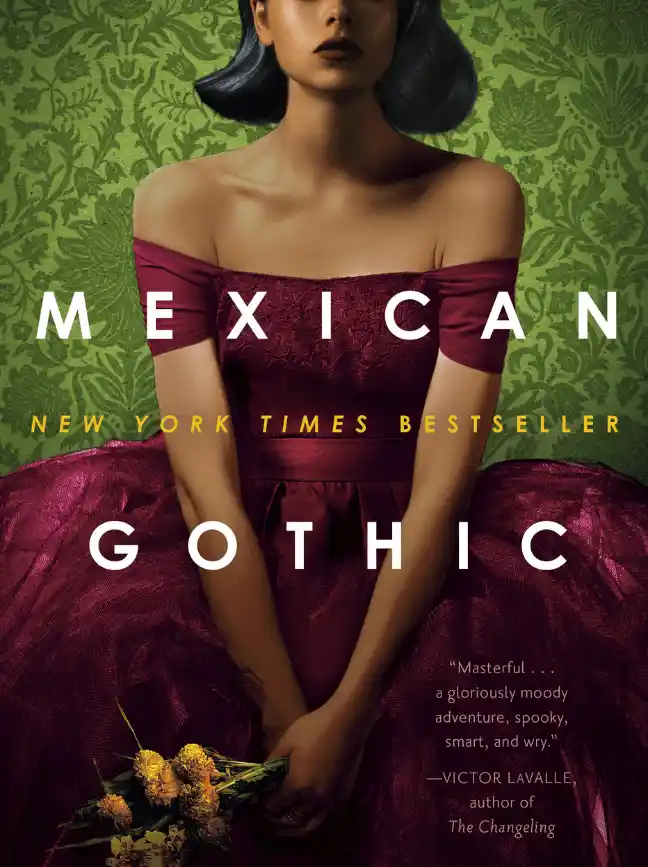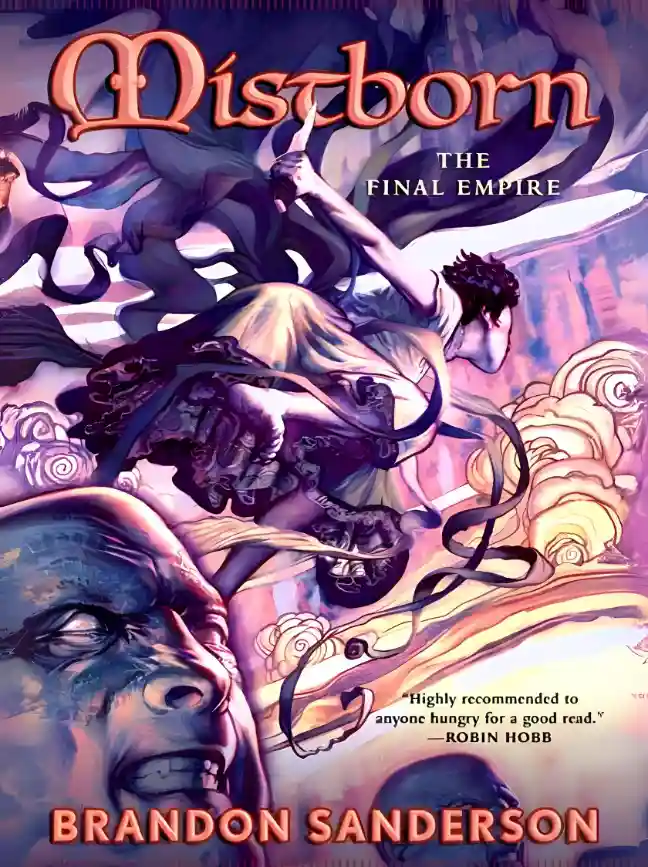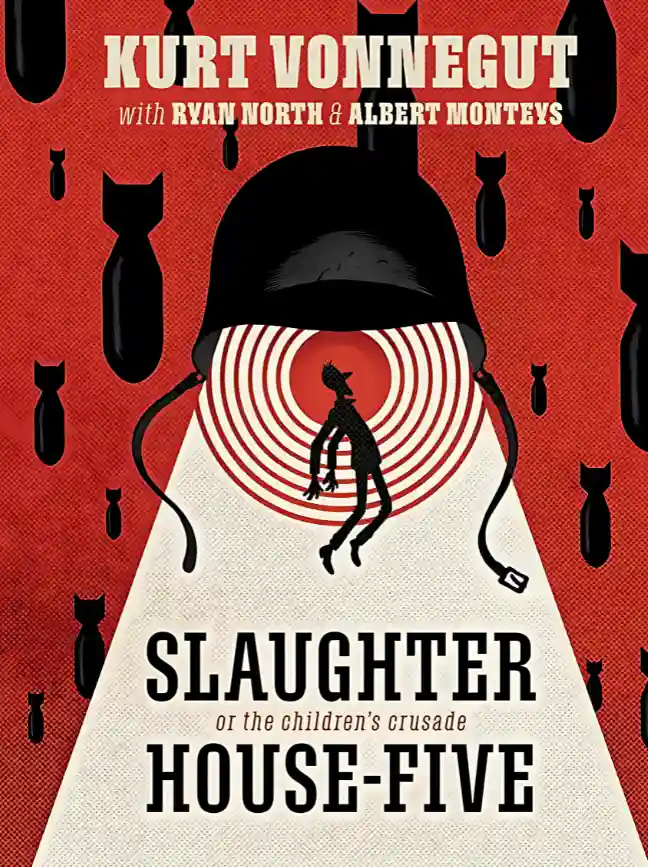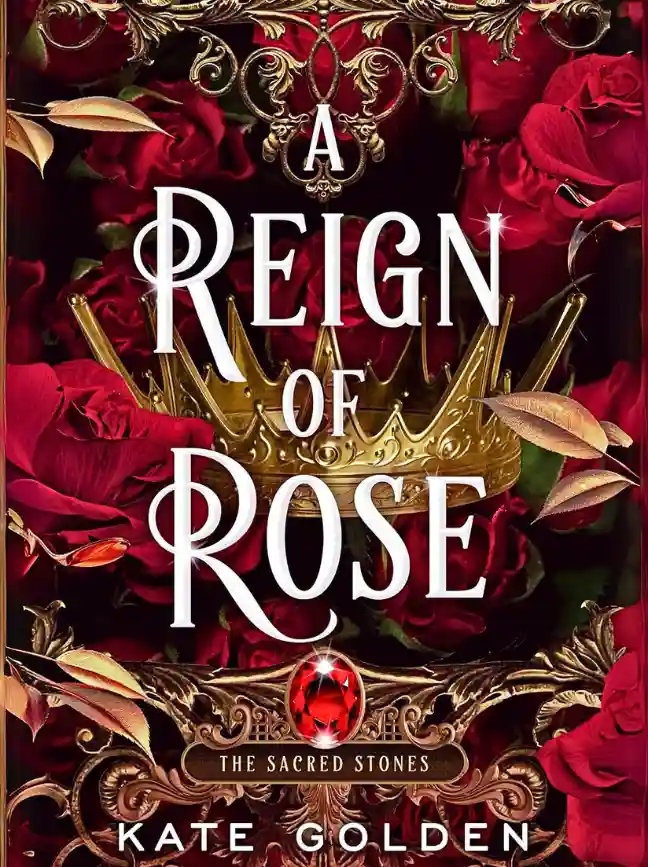Breakfast was brought to her on a tray. Thank goodness she did not have to sit down to eat with the whole family that morning, although who knew what dinner might bring. The chance for solitude made the porridge, toast, and jam she had been served a bit more appetizing. The drink available was tea, which she disliked. She was a coffee drinker, preferred it black, and this tea had a definite, faint, fruity scent to it.
After a shower, Noemí applied lipstick and lined her eyes with a little black pencil. She knew her large, dark eyes and her generous lips were her greatest assets, and she used them to excellent effect. She took her time going through her clothes and picked a purple acetate taffeta dress with a full, pleated skirt. It was too fine to be worn as a day dress—she had rung in 1950 in a similar outfit eight months before—but then she tended toward opulence. Besides, she wanted to defy the gloom around her. She decided that this way her exploration of the house would be more entertaining.
There certainly was a lot of gloom. Daylight did not improve High Place. When she walked the ground floor and opened a couple of creaky doors she was inevitably greeted by the ghostly sight of furniture covered with white sheets and draperies shut tight. Wherever the odd ray of sun slipped into a room, one could see dust motes dancing in the air. In the hallways, for every electrified sconce with a bulb there were three that were bare. It was obvious most of the house was not in use.
She had assumed the Doyles would have a piano, even if it was out of tune, but there was none, and neither could she find a radio or even an old gramophone. And how she loved music. Anything from
Lara to Ravel. Dancing too. What a pity that she’d be left without music.
She wandered into a library. A narrow wooden frieze with a repeating pattern of acanthus leaves, divided by pilasters, encircled the room, which was lined with tall, built-in bookcases stuffed with leather-bound volumes. She reached out for a book at random and opened it to see it had been ravaged by mold and was perfumed with the sweet scent of rot. She clapped the book shut and returned it to its place.
The shelves also contained issues of old magazines, including Eugenics: A Journal of Race Betterment and the American Journal of Eugenics.
How appropriate, she thought, remembering Howard Doyle’s inane questions. She wondered if he kept a pair of calipers to measure his guests’ skulls.
There was a terrestrial globe with countries’ names out of date in a lonesome corner and a marble bust of Shakespeare by a window. A large, circular rug had been placed in the middle of the room, and when she looked down at it she realized it showed the image of a black serpent biting its tail against a crimson background, with tiny flowers and vines all around it.
This was probably one of the best maintained rooms in the house
—certainly one of the most used, judging by the lack of dust—and still it seemed a tad frayed, its curtains faded into an ugly green, more than a few books blighted by mildew.
A door at the other end of the library connected with a large office. Inside it, the heads of three stags had been mounted on a wall. An empty rifle cabinet with cut-glass doors was set in a corner. Somebody had hunted and given it up. Atop a desk of black walnut she found more journals of eugenics research. A page was marked in one of them. She read it.
The idea that the half-breed mestizo of Mexico inherits the worst traits of their progenitors is incorrect. If the stamp of an inferior
race afflicts them, it is due to a lack of proper social models. Their impulsive temperament requires early restraint. Nevertheless, the mestizo possess many inherent splendid attributes, including a robustness of body…
She no longer wondered if Howard Doyle had a pair of calipers; now she wondered how many he kept. Maybe they were in one of the tall cabinets behind her, along with the family’s pedigree chart. There was a trash can next to the desk, and Noemí slid the journal she had been reading into the can.
Noemí went in search of the kitchen, having been informed of its location by Florence the previous day. The kitchen was ill lit, its windows narrow, the paint on its walls peeling. Two people sat on a long bench, a wrinkled woman and a man who, though noticeably younger, still sported gray in his hair. He was fifty-something, surely, and she probably closer to seventy. They were using a round brush to clean the dirt off mushrooms. When Noemí walked in, they raised their heads but did not greet her.
“Good morning,” she said. “We weren’t introduced properly yesterday. I’m Noemí.”
Both of them stared at her mutely. A door opened and a woman, also gray-haired, walked into the kitchen carrying a bucket. She recognized her as the maid who had served them during dinner, and she was of an age with the man. The maid did not speak to Noemí either, nodding instead, and then the couple who were seated on the bench nodded too before placing their attention back on their work. Did everyone follow this policy of silence in High Place?
“I’m—”
“We’re working,” the man said.
The three servants then looked down, their wan faces indifferent to the presence of the colorful socialite. Perhaps Virgil or Florence had informed them Noemí was someone of no importance and that they should not trouble themselves with her.
Noemí bit her lip and stepped outside the house using the back door the maid had opened. There was mist, like the previous day,
and a chill to the air. Now she regretted not wearing a more comfortable outfit, a dress with pockets where she could carry her cigarettes and her lighter. Noemí adjusted the red rebozo around her shoulders.
“Did you have a good breakfast?” Francis asked, and she turned around to look at him. He’d also come out through the kitchen door, wrapped in a snug sweater.
“Yes, it was fine. How’s your day going?” “It’s all right.”
“What is that?” she asked, pointing at a nearby wooden structure, made hazy by the mist.
“That’s the shed where we keep the generator and the fuel. Behind it is the coach house. Do you want to take a look at it? Maybe also go to the cemetery?”
“Sure.”
The coach house seemed like a place that might have a hearse and two black horses inside, but instead there were two cars. One was the luxurious older vehicle that Francis had driven; the other was a newer but much more modest-looking car. A path snaked around the coach house, and they followed it through the trees and the mist until they reached a pair of iron gates decorated with the motif of a serpent eating its tail like the one she’d seen in the library.
They walked down a shady path, the trees so close together only a smattering of light made it through the branches. She could picture this same graveyard once upon a time in a tidier state, with carefully tended shrubs and flower beds, but now it was a realm of weeds and tall grasses, the vegetation threatening to swallow the place whole. The tombstones were blanketed with moss, and mushrooms sprouted by the graves. It was a picture of melancholy. Even the trees seemed lugubrious, though Noemí could not say why. Trees were trees.
It was the sum of it, she thought, and not the individual parts that made the English cemetery so sad. Neglect was one thing, but neglect and the shadows cast by the trees and the weeds clustered by the
tombstones, the chill in the air, served to turn what would have been an ordinary collection of vegetation and tombstones into a fiercely displeasing picture.
She felt sorry for every single person buried there, just as she felt sorry for everyone living at High Place. Noemí bent down to look at a headstone, then another, and frowned.
“Why are all these from 1888?” she asked.
“The nearby mine was managed by Spaniards until Mexico’s independence and left alone for many decades because nobody believed much silver could be extracted. But my great uncle Howard thought differently,” Francis explained. “He brought modern English machines and a large English crew to do the work. He was successful, but a couple of years after reopening the mine there was an epidemic. It killed most of the English workers, and they were buried here.”
“And then? What did he do after? Did he send for more workers from England?”
“Ah…no, no need…he always had Mexican workers too, a large contingent of them…but they’re not all buried here. I believe they’re in El Triunfo. Uncle Howard would know better.”
A rather exclusive spot, then, though Noemí supposed it was for the best. The families of local crew members probably wanted to visit their loved ones, to leave flowers on their graves, which would have been impossible in this place, isolated from the town.
They walked onward until Noemí paused before a marble statue of a woman standing on a pedestal, flower wreaths in her hair. She flanked the doorway to a mausoleum with a pedimented doorway, her right hand pointing at its entrance. The name Doyle was carved in capital letters above this doorway along with a phrase in Latin: Et Verbum caro factum est.
“Who’s this?”
“The statue is supposed to be the likeness of my great aunt Agnes, who died during the epidemic. And here, the Doyles are all buried
here: my great aunt, my grandfather and grandmother, my cousins,” he said, trailing off, dipping into an uncomfortable silence.
The silence, not only of the cemetery but of the whole house, unnerved Noemí. She was used to the rumble of the tram and the automobiles, the sound of canaries chirping in the inner courtyard by the gleeful fountain, the barking of the dogs and the melodies pouring from the radio as the cook hummed by the stove.
“It’s so quiet here,” she said and shook her head. “I don’t like it.” “What do you like?” he asked, curious.
“Mesoamerican artifacts, zapote ice cream, Pedro Infante’s movies, music, dancing, and driving,” she said, counting a finger as she listed each item. She also liked to banter, but she was certain he could figure that out on his own.
“I’m afraid I can’t be much help with that. What kind of car do you drive?”
“The prettiest Buick you’ve ever seen. A convertible, of course.” “Of course?”
“It’s more fun driving without the hood on. It makes your hair look movie-star perfect. Also, it gives you ideas, you think better,” she said, running a hand through her wavy hair jokingly. Noemí’s father said she cared too much about her looks and parties to take school seriously, as if a woman could not do two things at once.
“What kind of ideas?”
“Ideas for my thesis, when I get to it,” she said. “Ideas about what to do on the weekend, anything really. I do my best thinking when I’m in motion.”
Francis had been looking at her, but now he lowered his eyes. “You’re very different from your cousin,” he told her.
“Are you also going to tell me I lean toward a ‘darker’ type, both my hair and coloration?”
“No,” he said. “I didn’t mean physically.” “Then?”
“I think you’re charming.” A panicked look contorted his face. “Not that your cousin lacks charm. You are charming in a special way,” he said quickly.
If you’d seen Catalina before, she thought. If he’d seen her in the city with a pretty velvet dress, going from one side of the room to the other, that gentle smile on her lips and her eyes full of stars. But here, in that musty room, with those eyes dimmed and whatever sickness had taken hold of her body…but then, perhaps it wasn’t that bad. Perhaps before the illness Catalina still smiled her sweet smile and took her husband by the hand, guiding him outside to count the stars.
“You say that because you haven’t met my mother,” Noemí replied lightly, not wishing to voice her thoughts on Catalina. “She is the most charming woman on Earth. In her presence I feel rather tacky and unremarkable.”
He nodded. “I know what that is like. Virgil is the family’s heir, the shining promise of the Doyles.”
“You envy him?” she asked.
Francis was very thin; his face was that of a plaster saint haunted by his impending martyrdom. The dark circles under his eyes, almost like bruises against that pale skin, made her suspect a hidden ailment. Virgil Doyle on the other hand had been carved from marble: he exuded strength where Francis irradiated weakness, and Virgil’s features—the eyebrows, the cheekbones, the full mouth— were bolder, entirely more attractive.
She could not judge Francis ill if he wished for that same vitality. “I don’t envy him his ease with words or his looks or his position,
I envy his ability to go places. The farthest I’ve ever been is El
Triunfo. That’s it. He’s traveled a bit. Not for long, he’s always quick to return, but it’s a respite.”
There was no bitterness in Francis’s words, only a tired sort of resignation as he continued speaking. “When my father was still alive he’d take me to town and I’d stare at the train station. I’d try to sneak in to look at the sign with the departure times.”
Noemí adjusted her rebozo, trying to find warmth in its folds, but the cemetery was terribly damp and chilly; she could almost swear the temperature had dropped a couple of degrees the more they’d pressed into it. She shivered, and he noticed.
“I’m so stupid,” Francis said, removing his sweater. “Here, have this.”
“It’s fine. Really, I couldn’t let you freeze for my sake. Maybe if we start walking back I’ll be better.”
“Well, fine, but please, wear it. I swear I won’t be cold.”
She put on the sweater and wrapped the rebozo around her head. She thought he might pick up the pace since she was now walking in his sweater, but he didn’t rush back home. He was probably used to the mist, the shady chill of the trees.
“Yesterday you asked about the silver items in the house. You were right, they came from our mine,” he told her.
“It’s been closed for a long time, hasn’t it?”
Catalina had said something about that; it was why Noemí’s father had not been keen on the match. Virgil seemed to him a stranger, maybe a fortune hunter. Noemí suspected he’d let Catalina marry him because he felt guilty about driving away her previous suitor: Catalina had loved him truly.
“It happened during the Revolution. That’s when a host of things happened, one thing led to another and operations ceased. The year Virgil was born, 1915, that was the absolute end of it. The mines were flooded.”
“Then he is thirty-five,” she said. “And you are much younger.” “Ten years younger,” Francis said with a nod. “A bit of an age gap,
but he was the one friend I had growing up.”
“But you must have gone to school eventually.” “We were schooled at High Place.”
Noemí tried to think of the house filled with the noise of children’s laughter, children playing hide and seek, children with a spinning top or a ball between their hands. But she couldn’t. The
house would have not allowed such a thing. The house would have demanded they spring from it fully grown.
“Can I ask you a question?” she said, when they were rounding the coach house and High Place was visible, the curtain of mist having parted. “Why the insistence on silence at the dining table?”
“My great uncle Howard, he’s very old, very delicate, and very sensitive to noises. And the sound travels easily in the house.”
“Is his room upstairs? He can’t possibly hear people talking in the dining room.”
“Noises carry,” Francis said, his face serious, his eyes fixed on the old house. “Anyway, it’s his house and he sets the rules.”
“And you never bend them.”
He glanced down at her, looking a little perplexed, as if it had not occurred to him until now that this was a possibility. She was certain he’d never drunk too much, stayed out far too late, nor blurted the wrong opinion in his family’s company.
“No,” he said, once again with that resigned note in his voice.
When they walked into the kitchen, she took off the sweater and handed it back to him. There was one maid now, the slightly younger maid, sitting by the stove. She did not look at them, too occupied with her chores to spare them a single glance.
“No, you should keep it,” Francis said, ever polite. “It’s rather warm.”
“I can’t be stealing your clothes.” “I have other sweaters,” he said. “Thanks.”
He smiled at her. Florence walked into the room, again decked in a dark navy dress, her face severe, glancing at Francis and then at Noemí, as if they were small children and she was trying to determine whether they had scarfed down a forbidden box of sweets. “If you’ll come with me for your lunch,” she said.
This time it was the three of them at the table; the old man did not materialize and neither did Virgil. The lunch was conducted
quickly, and after the dishes were cleared Noemí went back to her room. They brought up a tray with her dinner, so she supposed the dining room had been just for the first night and the lunch was also an anomaly. With her tray they also brought her an oil lamp, which she set by the bedside. She tried to read the copy of Witchcraft, Oracles, and Magic Among the Azande, which she’d brought with her, but kept getting distracted. Noises did carry, she thought, as she focused on the creaking of floorboards.
In a corner of her room there was a bit of mold upon the wallpaper that caught her eye. She thought of those green wallpapers so beloved by the Victorians that contained arsenic. The so-called Paris and Scheele greens. And wasn’t there something in a book she’d read once about how microscopic fungi could act upon the dyes in the paper and form arsine gas, sickening the people in the room?
She was certain she’d heard about how these most civilized Victorians had been killing themselves in this way, the fungi chomping on the paste in the wall, causing unseen chemical reactions. She couldn’t remember the name of the fungus that had been the culprit—Latin names danced at the tip of her tongue, brevicaule—but she thought she had the facts right. Her grandfather had been a chemist and her father’s business was the production of pigments and dyes, so she knew to mix zinc sulfide and barium sulfate if you wanted to make lithopone and a myriad of other bits of information.
Well, the wallpaper was not green. Not even close to green; it was a muted pink, the color of faded roses, with ugly yellow medallions running across it. Medallions or circles; when you looked at it closely you might think they were wreaths. She might have preferred the green wallpaper. This was hideous, and when she closed her eyes, the yellow circles danced behind her eyelids, flickers of color against black.








